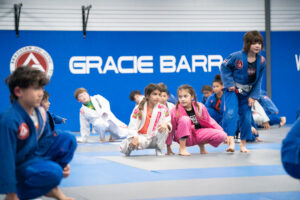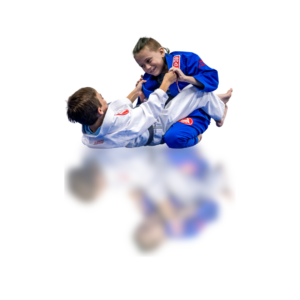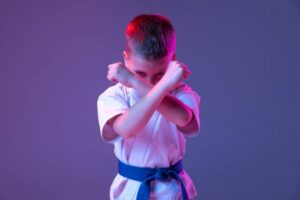Mental Development in Jiu-Jitsu for Children.
Jiu-Jitsu, a martial art rich in strategy and technique, offers notable benefits for the mental development of children. This article succinctly highlights how the practice of Jiu-Jitsu contributes to the enhancement of cognitive skills in young practitioners.
1. Strategic Thinking:
- Jiu-Jitsu involves strategizing to overcome opponents. Children learn to think ahead, assess situations, and make strategic decisions during training.
2. Problem-Solving:
- The variety of techniques and positions in Jiu-Jitsu requires children to develop robust problem-solving skills. They learn to adapt their approaches to different circumstances, promoting flexible thinking.
3. Focus and Concentration:
- The precise execution of movements in Jiu-Jitsu demands focus and concentration. Practicing children develop the ability to maintain attention, a crucial skill not only on the mat but also in educational and social environments.
4. Quick Decision-Making:
- In dynamic combat situations, children are encouraged to make quick and effective decisions. This quick thinking skill is transferable to various aspects of daily life.
5. Emotional Self-Control:
- The challenging environment of Jiu-Jitsu teaches children to control their emotions. Dealing with pressure in training promotes the building of emotional resilience and self-control.
In short:
Jiu-Jitsu not only strengthens the body but also nurtures mental development in children. By cultivating strategic thinking, problem-solving, focus, quick decision-making, and emotional self-control, this martial art provides a solid foundation for the mental and emotional growth of children.








